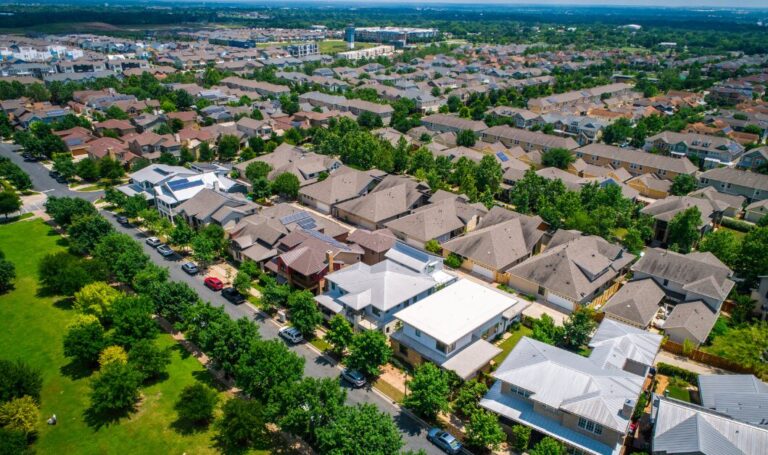When buying a new build, timing matters. Coordinating the sale of your current property with your next purchase can be challenging, especially if there’s a chain involved. A part exchange house arrangement changes that. By selling your existing home directly to the developer, you can move into your new property without the uncertainty of the open market.
Part exchange is often used by people buying new build homes, but it’s not limited to any one type of buyer. Whether you’re moving for work, upsizing, downsizing, or simply looking for a change, it’s worth understanding how it works and whether it could make your move simpler.
Related: When is the best time to sell your home?
How part exchange can help
Removes the need to market your home
With a part ex house scheme, you don’t need to list your property online or arrange multiple viewings. The developer becomes your buyer, removing the usual tasks of finding and negotiating with prospective purchasers.
Avoids chain-related delays
Property chains can cause delays if another sale or purchase in the chain is held up. A part exchange for a new build removes that dependency, reducing the risk of last-minute problems.
Stay until your new home is ready
In a new house part exchange, you only move out of your current property once your new home is complete. This means no temporary rentals, no double moves, and no storing furniture while you wait.
Saves on estate agent fees
Because you’re selling directly to the developer, there’s no estate agent commission to pay. Depending on your property’s value, this can mean a saving of several thousand pounds.
Keeps the process moving
Having a guaranteed buyer keeps transactions on track. This is particularly useful if you have a set moving date in mind, such as the start of a new job or the beginning of a school term.
Gives clarity from the start
You know early on what you’ll receive for your current property. While this figure is based on a quick-sale market value, it allows you to plan your budget with more certainty.
Related: How do instant online valuations work?
How does part exchange work when moving house?
If you’re considering a new build part exchange, the first step is to check whether your chosen development offers this option. Not all developers do, and some only offer it on specific plots.
Step one – Check eligibility
Developers will have set criteria for the types of property they can accept. This might include location, age, property type, and condition. They will also check that the home you want to part exchange is below a certain percentage of your new home’s value – often about 70%.
Step two – Property valuation
If your home meets the criteria, the developer will arrange for independent local estate agents to provide valuations. These are based on what your property could realistically sell for in a relatively short timeframe.
Step three – Offer and acceptance
Once the valuations are complete, the developer will make you an offer. If you accept, your sale and purchase move forward together.
Step four – Legal process
Your solicitor and the developer’s solicitor handle the legal work. This covers both the transfer of your current property to the developer and the purchase of your new build.
Step five – Completion and moving day
On the agreed completion date, you hand over the keys to your current home and move straight into your new property. The transition is usually much smoother than with a traditional sale.
Related: Smart home tech made simple :A guide for home owners and buyers
Part exchange house rules
Each developer sets their own part exchange house rules, but common requirements include:
- Property type exclusions – Some won’t accept leasehold flats, ex-local authority homes, or properties with certain structural or legal issues.
- Value limits – Your current home usually needs to be worth less than a set percentage of the new property’s price.
- Condition standards – The property must be in a condition that allows for resale without major repairs.
- Quick-sale valuations – Offers are based on what the property could sell for within a set period, not the highest possible asking price.
- Stamp duty – You’ll still need to pay stamp duty on the new property unless you’re eligible for relief.
- Snagging surveys – Always arrange a snagging survey for your new build to ensure any issues are addressed before or soon after you move in.
Related: What happens on completion day? A buyer’s guide
Other considerations worth knowing
- Incentives and extras – Some developers offer additional incentives with part exchange, such as contributions towards stamp duty or upgrades on fixtures and fittings.
- Timeframes – Part exchange can be quicker than an open-market sale, but it still requires legal and financial checks. Allow time for the process.
- Mortgage implications – If you’re taking out a mortgage on your new home, speak to your lender early. The timelines for part exchange and mortgage approval need to align.
- Independent advice – While developers will handle the sale, it’s wise to seek independent legal and financial advice so you understand the full terms.
- Future sale – If you think you may sell the new build in a few years, consider its resale appeal and local market trends.
Is part exchange right for you?
Buying a part exchange house from a developer can remove many of the hurdles that come with selling and buying at the same time. It’s particularly useful if you want to avoid the unpredictability of the open market, value a fixed moving date, or need a straightforward transaction.
Our team can explain how the process works, outline any developer-specific requirements in your area, and help you decide whether this approach suits your plans. To see if part exchange is the right option for your move, speak to your local Ellis & Co branch.







